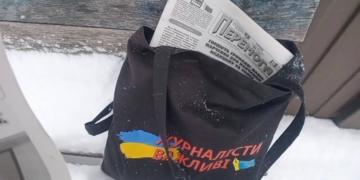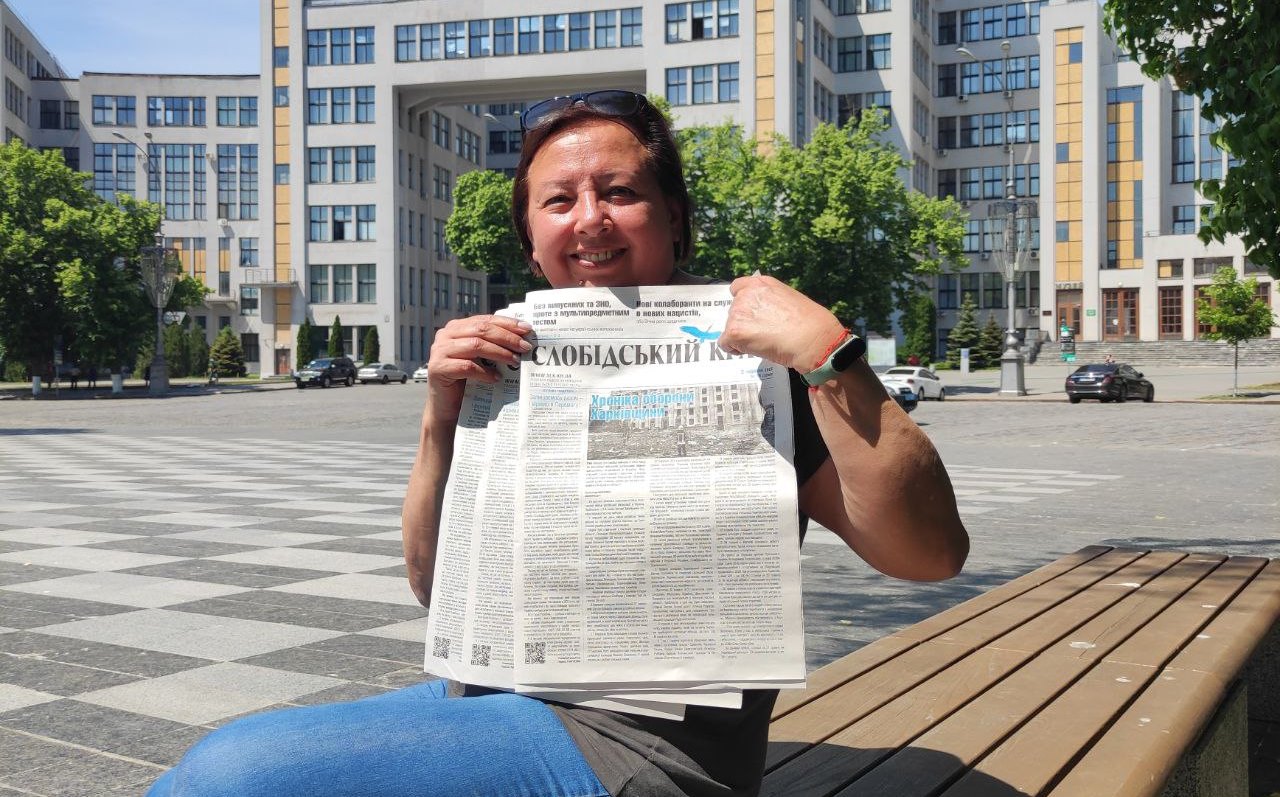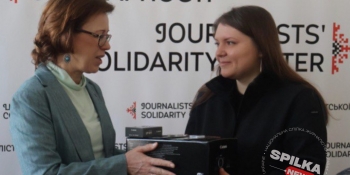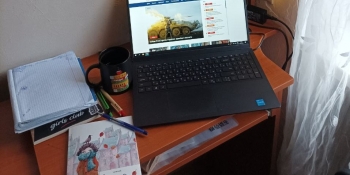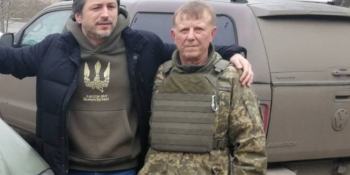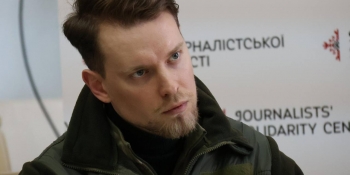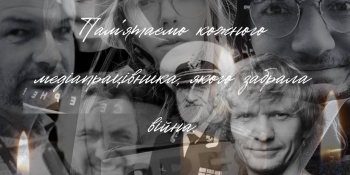Larysa Hnatchenko is the editor-in-chief of the oldest edition in the Kharkiv Region called Slobidskyi Krai. The great war came when a fresh issue of the newspaper was published, and the team had to start working on the next one. Could any of the media people have predicted what kind of dagger a neighboring country would stick in the back of Ukraine?
“They started bombing Kharkiv, subversive groups troopers literally ran under the windows.”
On February 23, Larysa returned from work late, because she was handing in the newspaper for printing. She was tired and fell asleep almost immediately.
Mass shelling did not stop either day or night. The worst things happened during the air raids.
When she couldn’t bear it anymore, and fear finally took over both body and mind, Larysa decided to leave her home.
Having settled in a new place, Larysa returned to work. There was a daughter nearby who, although she worked in the hotel business before the war, unexpectedly for herself and for her mother, became an editor.
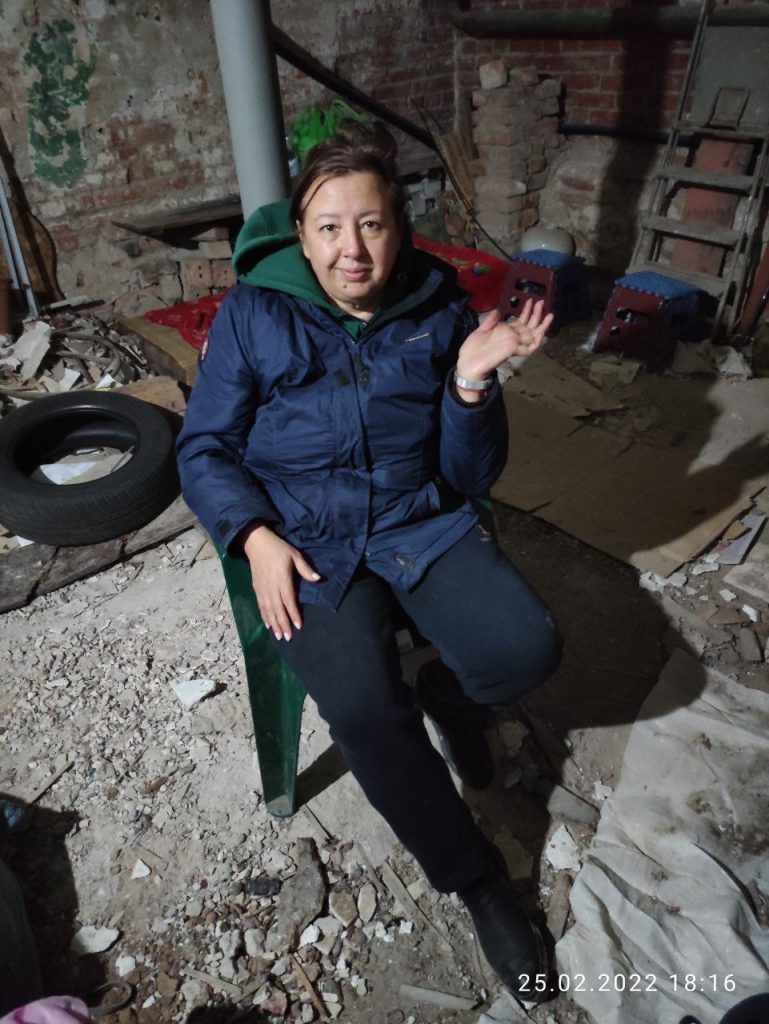
“People do not return, because many of them simply have nowhere to return”
Physically, Larysa lived in relatively safe Kremenchuk, but her soul and thoughts were always in her native Kharkiv. Later, she began to visit home and returned permanently in the fall.
“It was a shock for people when they found out what was really going on”
Before the full-scale invasion of the Russians, Slobidskyi Krai was published twice a week. Already in June, with the support of the Irex organization, the team was able to resume printing the newspaper. However, it is now published only once a week, but has 16 pages.
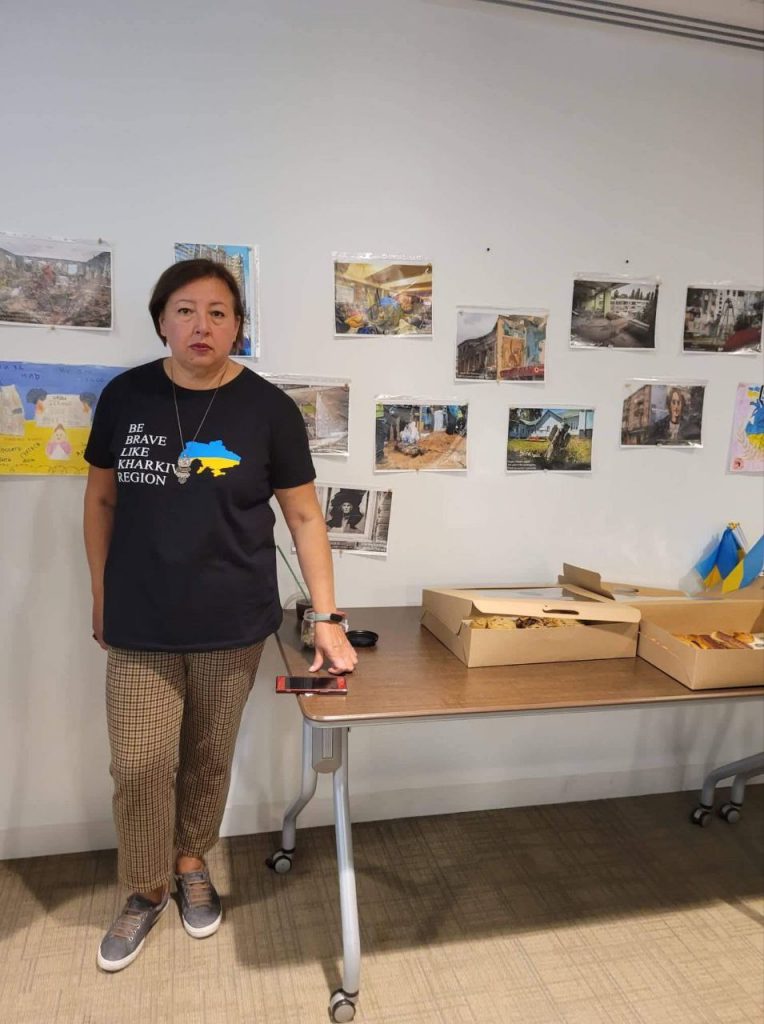
“We really hope that the state will adopt some changes regarding printed newspapers”
According to the editor, another extremely important area of their work is community support.
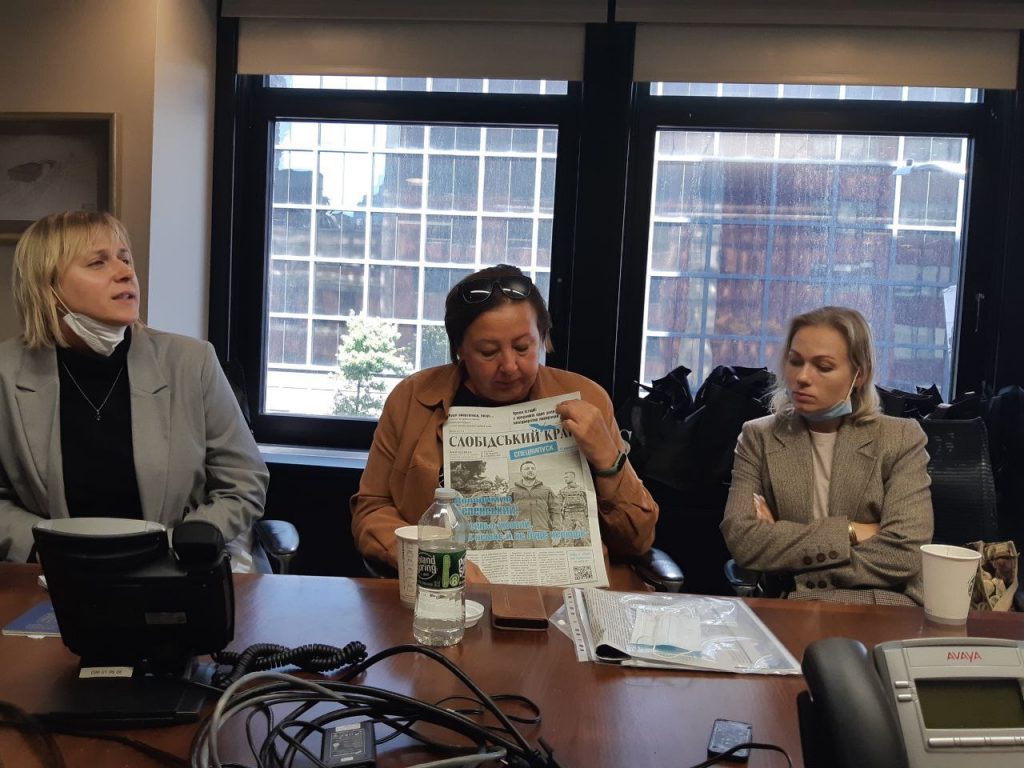
“It is necessary to write about communities that were occupied or are still partially under occupation, to write about those communities where hostilities are taking place. We draw attention to the fact that communities can attract international aid, in general any aid, in addition for the one provided centrally by the state,” explains Larisa. “At the same time, we tell the stories of people who need operations, medical preparations, bulletproof vests or other means of protection. And when we manage to draw attention to their stories and help, we have feedback from the readers! They write and call us a lot. And this is very important. We also help to contact the prosecutor’s office so that there is an opportunity to identify the bodies of deceased relatives. It is very difficult from the moral point of view. We cry and take sedatives, but this is what we have to do: if they turn to us, then they trust us. We spent a lot of time knocking on all the doors and said even before the war that the communities of our region, rural communities, needed primarily printed publications. After all, the Internet signal coverage is very bad there, the audience there is completely different than in the cities, we are needed there. But for many years, print media was destroyed. Ukrposhta also contributed to this, when newspapers did not reach readers. When the occupiers came, they immediately started distributing their newspaper. Maybe they knew something? Now it is very difficult for us to distribute the Ukrainian edition, and we have border territories, and the enemy is nearby. We really hope that the state will adopt some changes regarding printed newspapers, so that the pro-Ukrainian press can be distributed as much as possible, in particular in the villages and in the border areas,” concluded Larysa Hnatchenko, the editor-in-chief of Slobidskyi Krai.
JOURNALISTS ARE IMPORTANT. Stories of Life and Work in the Conditions of War is a series of materials prepared by the team of the National Union of Journalists of Ukraine (NUJU) with the support of the Swedish human rights organization Civil Rights Defenders.





